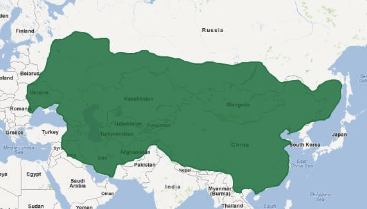Map:Gbiu2nwmqei= Genghis Khan

Genghis Khan’s ascent from humble beginnings to the architect of an expansive empire invites a closer examination of the factors that shaped his leadership and military acumen. His ability to unite disparate tribes under a single banner not only revolutionized warfare but also set the stage for significant cultural and political transformations. As we consider the intricacies of his strategies and the lasting implications of his legacy, one must ponder how the lessons drawn from his life remain relevant in contemporary discussions surrounding power and governance. What can this historical figure teach us about the nature of leadership today?
Early Life and Background
Genghis Khan, originally named Temüjin, was born around 1162 in the steppes of Mongolia, a region characterized by its harsh climate and nomadic culture.
His early life was shaped by complex family dynamics, including tribal loyalties and rivalries, which were influenced by the broader cultural context of Mongolian society.
These factors significantly impacted his worldview and later leadership style.
See also: Map:E9fa0eqrbb8= Brussels
Rise to Power
Harnessing the tumultuous environment of the Mongolian steppes, Temüjin began his ascent to power through a combination of strategic alliances and military prowess.
His ability to forge tribal alliances showcased exceptional leadership qualities, enabling him to unite disparate clans under a common banner.
This unity not only strengthened his position but also laid the groundwork for the expansive Mongol Empire that would follow.
Military Strategies and Tactics
Employing innovative military strategies and tactics, Temüjin transformed the Mongol army into a formidable force that could outmaneuver and outfight its adversaries.
His use of flanking maneuvers allowed for rapid assaults on enemy flanks, while psychological warfare instilled fear and confusion.
These approaches not only maximized combat effectiveness but also ensured that the Mongol forces maintained the initiative, securing their dominance on the battlefield.
Legacy and Influence
Throughout history, the legacy of Genghis Khan has left an indelible mark on both the political and cultural landscapes of numerous regions.
His conquests facilitated unprecedented cultural exchange, shaping historical interpretation across continents.
Genghis Khan’s influence persists in modern governance and social structures, reflecting a complex cultural impact that continues to inspire discussions on leadership, unity, and the pursuit of freedom in diverse societies.
Conclusion
The extraordinary saga of Genghis Khan encapsulates a relentless drive that reshaped the world. His unyielding ambition forged an empire sprawling across continents, while military innovations rendered traditional warfare obsolete. The cultural tapestry woven by his conquests dazzles with vibrant exchanges and ideas, illuminating the corridors of history. Genghis Khan’s indelible mark on governance and societal structure reverberates through time, echoing like thunder across the steppes, forever challenging notions of power, unity, and resilience.




